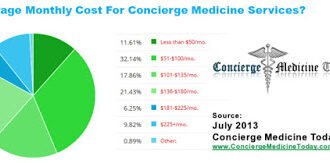With the recent CDC study predicting that obesity rates in the U.S. will reach up to 42% by 2030 and account for over half a trillion dollars in health care spending, it is clear there is much work to do in halting and reversing the obesity epidemic. Americans face a daily uphill battle to eat healthy and be active in an environment that has high calorie, low nutrient-dense food available 24 hours a day, and makes it easy to be sedentary.
With the recent CDC study predicting that obesity rates in the U.S. will reach up to 42% by 2030 and account for over half a trillion dollars in health care spending, it is clear there is much work to do in halting and reversing the obesity epidemic. Americans face a daily uphill battle to eat healthy and be active in an environment that has high calorie, low nutrient-dense food available 24 hours a day, and makes it easy to be sedentary.
Health insurance plans have a long-standing commitment to work with the populations they cover and the communities they serve, creating programs and initiatives that can make a real difference in people’s lives and well-being. Many health plans are handling the challenge of overweight and obesity through developing toolkits for physicians, establishing telephone or web-based weight management programs, and implementing healthy eating and physical activity programs in school and worksites.
Physicians and other clinicians have an important role to play, and body mass index (BMI) screening and counseling around weight-related behaviors are often a first step in helping individuals and families learn about the dangers of unhealthy weight and what they can do about it. Health plans are conducting outreach and providing assistance to physicians to help them address these issues with their patients, using efforts such as screening, counseling and referral.
Because public health experts agree that our weight, eating habits, and physical activity habits are strongly influenced by our environment – where we live, work, and go to school – health plans recognize they need to reach people outside the clinical setting as well. Recognizing that adults spend much of their day at work, health plans are working with employers to implement wellness programs that target behaviors related to weight – including providing health risk assessments to identify people who need to reduce their BMI, improve physical activity and eating habits, or who have other obesity-related conditions (such as hypertension, type 2 diabetes or prediabetes). At-risk members are informed about programs that can help them – such as working with a health coach either in person or more commonly, telephonic or online coaching, as well as participating in web-based programs, classes, or support groups. Incentives are sometimes a part of these programs, as a growing body of evidence demonstrates that incentives can increase engagement.
The obesity epidemic also affects children, and health plans’ efforts to reduce childhood obesity are occurring in schools, community farmer’s markets and health fairs, through working with local government, and through reaching out and educating parents and families. AHIP’s recent report, Reducing and Preventing Childhood Obesity: Health Insurance Plans Partnering in Communities, features a sample of the innovative programs that health plans have developed and implemented in their communities, in collaboration with schools, community groups, and policy-makers, to prevent and ultimately reverse childhood obesity.
Other AHIP resources on obesity:








